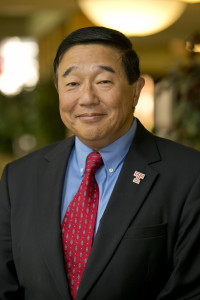Paul Nachman
VDARE
September 15, 2015

A vignette I’ve told here before: At a Claremont Institute conference on immigration and citizenship held at Chapman College (Orange, California) early in 2003, I was introduced to Temple University (Philadelphia) law professor Jan Ting. Upon learning that Professor Ting had been Assistant Commissioner of the Immigration and Naturalization Service [INS, a partial precursor to the Department of Homeland Security (“security”—that’s worth a chuckle!)] under President George H. W. Bush, I asked him, “Is it true what I’ve heard, that 90 percent of refugee and asylum cases are fraudulent?”
Without missing a beat, Ting replied, “95 percent.”
(Professor Ting, himself the son of Chinese immigrants who arrived in the U.S. soon after World War II, is now on the board of directors and was previously a fellow of the Center for Immigration Studies. Recently he wrote in favor of Donald Trump’s Immigration plan. )
My “favorite” example of fraud in asylum or refugee cases was evident (though its fraud component wasn’t commented upon) in a Los Angeles Times article of April 17, 1998 (Tortured Iraqi Fugitive Given U.S. Sanctuary, by Mark Fritz). From the article:
In his application for protection, Hussein said he had been tortured numerous times after he was drafted into the Iraqi army because he was suspected of supporting the Kurdish rebels that have waged rebellions against the government of Saddam Hussein.
“The soldiers kicked me and beat me with thick cables and the backs of guns,” he said in his statement. While in custody, he said he was hanged by his feet from a fan and spun around until he threw up, while guards pummeled his face.
He said he eventually escaped to Iran in 1994 after buying the identity papers of an army veteran. He said he stowed away on a Greek ship bound for Brazil, then hid on a second ship bound for the United States and arrived in March 1997.
From earlier in the the Times’s article, one can conclude that—probably—this wasn’t inherently a fraudulent case: Hussein actually was systematically brutalized. The fraud came because he didn’t apply for asylum in the country he first escaped to, Iran, or even the second country, Brazil. Instead, he waited to make his asylum claim until, more than two years after arriving in Iran, he reached the land of milk, honey, and few-questions-asked welfare, the United States.
But here’s Article 31, section 1 of the United Nations’ 1951 Convention Relating to the Status of Refugees:
The Contracting States shall not impose penalties, on account of their illegal entry or presence, on refugees who, coming directly from a territory where their life or freedom was threatened in the sense of article 1, enter or are present in their territory without authorization, provided they present themselves without delay to the authorities and show good cause for their illegal entry or presence.
[emphasis added]
(It’s clear from the full document that its term “refugee” includes both refugees and those we now refer to as asylees, the latter pertinent to this case of the Iraqi Kurd.)
Further, we can see from the map here that both Iran and Brazil are signatories to the Convention and to its follow-up 1967 Protocol, so Hussein should certainly have requested asylum before he reached the U.S..
What brings that 1994 – 1998 “asylum-shopping” case to mind is a brief passage in an August 25, 2015 New York Times article, whose headline alone (A 21st-Century Migrant’s Essentials: Food, Shelter, Smartphone, by Matthew Brunwasser) suggests that we’re not necessarily dealing with the wretched of the earth. The article is datelined Belgrade, Serbia and includes these two paragraphs:
Mohammed Salmoni, 21, from Kabul, Afghanistan, who had stopped to charge his phone at a newspaper kiosk in Belgrade, credited it with saving his life.
He used it to navigate a 40-hour walk across the Afghan province of Nimruz to the Iranian city of Zahedan. “It was very dangerous,” he said.
Got that? Mr. Salmoni fled Afghanistan (no reason given) and reached Iran, but when he encountered the NYT’s writer, somehow here he was, with his trusty phone, in Serbia. And there’s really no implication that he’ll submit an asylum claim there; let’s guess that he’ll, instead, head north and west in Europe until he reaches the most fertile area of that feckless cuck-continent, to live off the land—or at least off its natives.
 Daily Stormer The Most Censored Publication in History
Daily Stormer The Most Censored Publication in History



